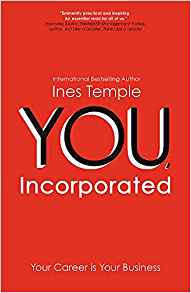
By Ines Temple
In today’s professional world, there will be times that we have a job, and others that we have to find one. In fact, we will have to go back out into the job market several times during our professional lives. Going through a job transition may be (and hopefully should always be) an opportunity for growth and professional and/or career advancement.
In this context, what could hamper our job transition? Basically, it comes down to attitude. Someone with a bad attitude goes around in a defeated mood, hasn’t really worked on a plan to secure a new job, feels discouraged, and is constantly hanging on to the past, to what he lost, to what was taken away from him. The energy required to cope with all that emotional noise makes this person very negative, not to mention unproductive. Sadly, many people invest all their energy wondering who might have blacklisted them, or whether their boss acted fairly or not letting them go. Others try to continue renegotiating the terms of their separation. Most of those with this attitude, who seem to be stuck in a permanent state of mourning, spend their days wandering, aimlessly. Sometimes, they run away from their problems by going on vacation or saying: “I’m tied up now taking care of things that I never had the time for when I was working”, clearly not focusing on their outplacement process, on putting together a start-up plan if they hope to build their own business, or redesigning their future. Many even bad-mouth their former employers in an attempt to justify their exit to themselves and others.
By contrast, someone in a job transition with a positive attitude is actively and assertively developing a plan to find a new job quickly or analyzing his possibilities to start his own business. This person is active; he takes care of his personal brand and the messages he sends out about his goals, processes, and progress. This is why we always advise someone who becomes jobless (whether willingly or not) to really focus on his attitude and actively work on implementing his new outplacement plan.
It’s very important not to waste valuable time dealing with minor, less productive matters, or otherwise resting, traveling, or relaxing. As the months go by, if we lose focus, get distracted, have a poor attitude or lose momentum, contacts may start looking at us differently: “Could it be that there isn’t any real demand for his services? Is he not as good as he seemed?” And this can negatively impact the value of our personal brand.
Someone in a job transition looks towards his future, thinking about and planning what he wants to do. He analyzes his strengths and weaknesses to improve on them. He actively maintains his network of contacts, with a clear understanding of what he can do for every organization he approaches. He defines his personal positioning. He seeks to understand the labor market and his country’s economy at the time, analyzing companies and industries in order to find out where opportunities may lie. He prepares his tools, revising his résumé and personal marketing plan, practicing for interviews, and increasing his employability by attending courses, seminars, and forums. This person is most active, excited about the future, and works hard to shape it!
Certainly, doing all of this is not easy, and it’s a full-time job in and of itself, but it shows the commitment and professionalism we are capable of with regard to our career, and the confidence that we have in our talents and reputation. This winning attitude is highly effective, and it is the key to transmitting to the market our real commitment to the value that we can add as part of a future job and the results that we can generate there. Take great care of your attitude and — if the time comes — never act negatively but rather always positively in a transition process to a future full of opportunities that we create for ourselves.
* * *
 Ines Temple is president of LHH DBM Peru and Chile, the leading career transition and talent-development organizations in both countries, and she has provided outplacement services and HR consulting to executives and other workers throughout the world. She has published over 800 articles and videos on topics such as the new world of work, personal branding and employability. Her book, You, Incorporated: Your Career Is Your Business (Usted S.A.),has been a top bestseller among business books in Peru since 2012 and is now available in English. Learn more at www.inestemple.com.
Ines Temple is president of LHH DBM Peru and Chile, the leading career transition and talent-development organizations in both countries, and she has provided outplacement services and HR consulting to executives and other workers throughout the world. She has published over 800 articles and videos on topics such as the new world of work, personal branding and employability. Her book, You, Incorporated: Your Career Is Your Business (Usted S.A.),has been a top bestseller among business books in Peru since 2012 and is now available in English. Learn more at www.inestemple.com.